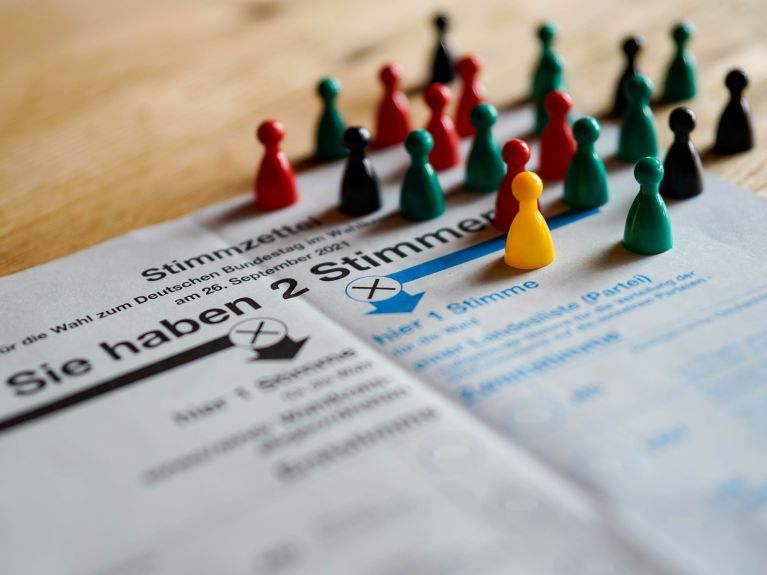Facts about the Bundestag election
The 2025 German federal election – key questions and answers surrounding the election of the country’s new parliament.

On 23 February 2025 voters in Germany will be electing a new parliament – the Bundestag.
Who is entitled to vote?
There are 84.5 million people living in Germany. German citizens over the age of 18 are entitled to vote, that is 59.2 million people. German citizens who are living abroad have to make a formal application to be included in the electoral register. All other entitled citizens are automatically eligible to vote in their constituency without having to register or make an application. Postal votes are always possible. Almost half of the eligible voters are currently living in the three federal North Rhine-Westphalia (12.8 million), Bavaria (9.4 million) and Baden-Württemberg (7.7 million). The 11.4 million foreign citizens living in Germany are not entitled to vote in the federal election.
Quick facts
How does voting work in Germany?
The electoral system is a system of personalized proportional representation. In each of the 299 constituencies the first vote is cast to directly elect a person. The second vote is cast to elect a party. The 630 seats in the Bundestag are filled in this way.
Do minorities have their own parties?
In Germany there are four state-recognized minorities: Sorbs, Danes, Frisians and the German Sinti and Roma. There is only a special party for the Danes and Frisians in Schleswig-Holstein, the South Schleswig Voters Union (SSW). It was standing for election to the Bundestag for the first time in 2021. The SSW has a good chance of gaining a seat again, because it is exempted from the 5 per cent clause as a protected minority. This means that the calculated average number of votes needed for a single mandate is sufficient for the party to be represented.



